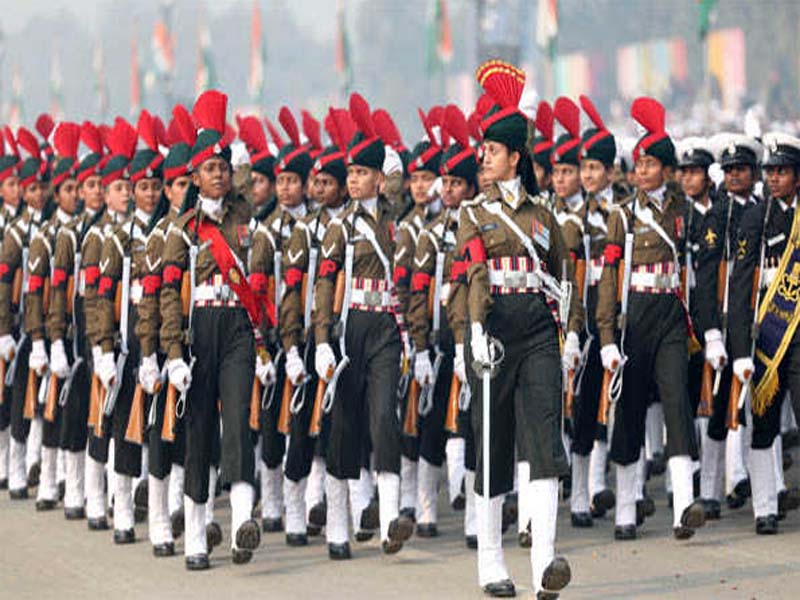Farmers’ stir set to pick up after brief lull
New Delhi, May 9 : Anger, agitation and unrest are not uncommon when farmers’ interests are at stake in Punjab.
It has been over seven months since Parliament enacted three laws, deemed as “anti-farmers”, evoking a strong reaction from the farming community across the country.
The passage of these bills had been opposed tooth and nail in Punjab and Haryana as according to farmers’ leaders, the legislations “do not address the concerns of farmers” vis-a-vis the Minimum Support Price. The laws are regarded as pro-corporates who would “dominate Indian food and agriculture business”, they say.
The Government, however, has repeatedly claimed that the bills that replaced ordinances, aimed at the transformation of agriculture and raising of farmers’ income. The legislation will enable barrier-free trade of agricultural produce and empower farmers to engage with investors of their choice, according to Union Agriculture and Farmers Welfare Minister Narendra Singh Tomar.
The farming community, who have been staging protests for the past 164 days, are now hell-bent to oppose the lockdown imposed in wake of the virulent second wave of COVID-19. “Governments are imposing lockdown (in various regions) to hide their failures and to take anti-people decisions. This has affected the lives of farmers, labourers, shopkeepers and common citizens in a big way,” a farmer leader said.
Surprisingly, Punjab Chief Minister Capt Amarinder Singh, who has till now backed the farmers protest, has warned of strict action against those violating the lockdown restrictions. While supporting farmers’ agitation last year, Mr Singh had said his government would not register any FIRs against the violators of prohibitory orders under section 144. The state government was with farmers in their fight against the farm bills, he had stated then.
Borders hotter
Despite the lockdown, the farmers are now once again grouping in large numbers on the periphery of the national capital.
Large groups of Punjab farmers have planned to leave for Delhi borders on May 10 and May 12 in a bid to strengthen farmers’ protest, farmers leader Buta Singh Burjgil said.
At the Tikri border, which has been the focal point of the farmers’ agitation, a farmer leader told UNI that the farmers would intensify their protest in the coming days. “We have been sitting here for the past several months. We are ready to talk to the government and it should initiate the talks with good intentions,” he said.
The call to farmers to reach the protest sites in large numbers comes as the harvesting of the wheat crop is almost over in Punjab.
The fresh amassing of farmers at Delhi borders is likely to pose a challenge to the government when the cases of deaths are exponentially rising in the pandemic time.
The Opposition had left no stone unturned to use the farmers’ platform against the government. Besides the Punjab Congress and the Akali Dal, the Aam Aadmi Party, too, have time and again extended their support to the farmers’ strike and urged the government to repeal the laws.
Not the first time
Interestingly, Punjab had witnessed similar turmoil earlier also. Exactly 119 years ago when India was under British rule, an unjust law — Punjab Land Alienation Act of 1901 — was added to the rules book. In turn, this law made the people of Punjab politically more conscious.
The legislation aimed at limiting the transfer of land ownership in Punjab Province while the Britishers said the main objective of the Act was to protect the agriculturists from the clutches of moneylenders. The bill was heavily censured by the Punjab press and political leaders then. The restriction imposed by the Act offended ‘non-agriculturists’ who took the course of the petition to press for the redressal of their grievances.
Even in 1899, the Indian National Congress had opposed the bill, even before its tabling during its annual session held at Lucknow. But, despite defiance, as the bill became Act in 1901, it generated a sense of rebellion among the people.
Further sprinkling salt on the wounds, in 1906, the British came with a set of two new colonial laws — the Colonisation Act and the Doab Bari Act — which put the genie of people’s anger out of the bottle. The Punjabis felt much agitated and prepared themselves for revolutionary action against this unreasonable and unjustified legislation.
A movement, named “Pagdi Sambhal Jatta”, broke out which was led by Shaheed Bhagat Singh’s paternal uncle, Sardar Ajit Singh.
The impact of the movement was so massive that it had often been termed as the beginning of the freedom movement in Punjab. As the unrest gained momentum, the British government feared that it could turn into another wave of rebellion on the lines of “The Revolt of 1857”. They immediately arrested Ajit Singh and incarcerated him in Mandalay Jail in Burma.(UNI)



